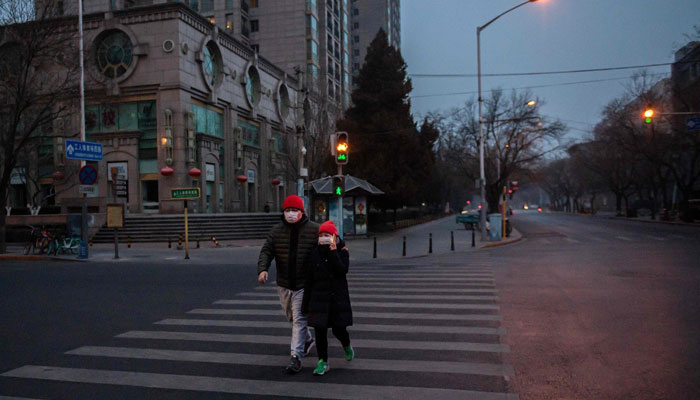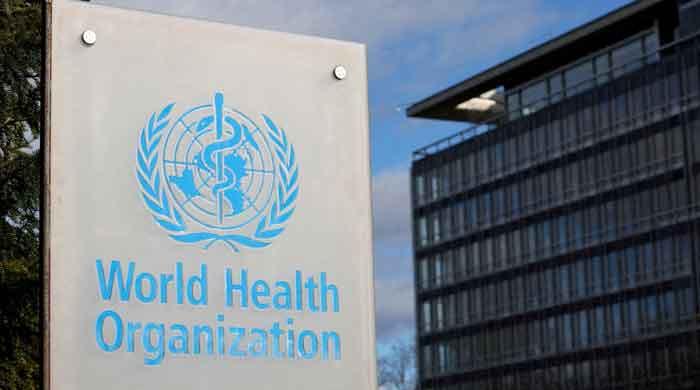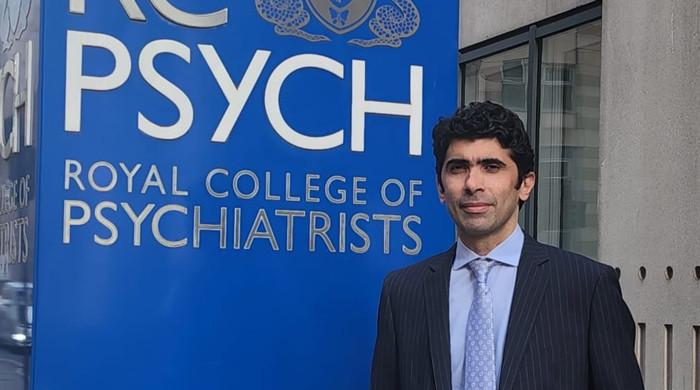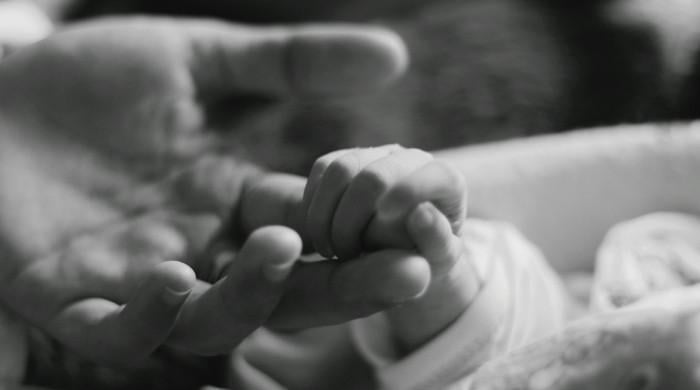Coronavirus death toll passes 1,000 after highest single-day tally of 103
The viral epidemic has infected more than 42,000 and reached some 25 countries
February 11, 2020

BEIJING: The toll from China's deadly coronavirus outbreak passed 1,000 on Tuesday as President Xi Jinping called for more "decisive" measures to tackle the outbreak in a rare visit to a frontline hospital.
The Chinese president donned a face mask and had his temperature checked while visiting medical workers and patients affected by the deadly coronavirus that has killed at least 1,011 people.
The fatalities soared after hardest-hit Hubei province — the epicentre of the outbreak — reported another 103 deaths on Tuesday, the highest single-day toll since the virus emerged.
At a hospital treating infected patients in Beijing, Xi on Monday called the situation at the epicentre "still very grave" and "more decisive measures" to contain the spread of the virus, said state broadcaster CCTV.
Xi has largely kept out of the public eye since the virus outbreak spiralled across the country from Hubei province to infect more than 42,000 people.
He appointed Premier Li Keqiang to lead a group tackling the outbreak and it was Li who visited ground zero in Wuhan last month.
On Monday, Xi put on a blue mask and white surgical gown to meet doctors at Beijing Ditan hospital, observe the treatment of patients and speak via video link to doctors in Wuhan, state media said.
Read also: Coronavirus death toll surges past 900 with 40,000 cases confirmed in China
He then visited a residential community in central Beijing to "investigate and guide" efforts to contain the epidemic, said CCTV.
Video footage showed Xi having his temperature taken with an infrared thermometer then speaking with community workers and waving at smiling residents leaning out of apartment windows.
The outbreak has prompted unprecedented action by the Chinese government, including locking down entire cities in Hubei as well as cutting transport links nationwide, closing tourist attractions and telling hundreds of millions of people to stay indoors.
The sweeping measures have turned cities into ghost towns — but there were some signs of normality returning as many went back to work this week.
'We're worried'
Roads in Beijing and the financial hub of Shanghai had significantly more traffic, while the southern city of Guangzhou said it would start to resume normal public transport.
However, many of those returning to work were uneasy.
"Of course we're worried," said a 25-year-old man surnamed Li in a Beijing beauty salon that reopened Monday.
"When customers come in, we first take their temperature, then use disinfectant and ask them to wash their hands."
The Shanghai government suggested staggered work schedules, avoiding group meals and keeping at least one metre (three feet) away from colleagues.
Many were encouraged to work from home and some employers simply delayed opening for another week.
Read also: President Xi meets patients, medics at coronavirus hospital
State media reported that passenger numbers on the Beijing subway were half that of a normal working day.
Large shopping malls in the capital were deserted and many banks closed.
One bank employee in Shanghai was heading to work for a half-day, with other workers due to take over in the afternoon.
The rest of the day he would work from home.
"It makes our work more difficult," he told AFP.
Schools and universities across the country remained shut.
The toll has overtaken global fatalities in the 2002-03 SARS epidemic when China drew international condemnation for covering up cases, though Beijing has drawn praise from the World Health Organisation this time.
'Go back'
An advance team for a WHO-led international expert mission on the virus arrived in China late Monday, headed by Bruce Aylward who oversaw the organization's 2014-2016 response to the Ebola epidemic in West Africa.
Ahead of the team's arrival, WHO chief Tedros Adhanom Ghebreyesus warned there had been some "concerning instances" of cases overseas in people with no travel history to China.
"We may only be seeing the tip of the iceberg," he tweeted.
Read also: China pledges $43bn to firms fighting coronavirus
Aboard the quarantined Diamond Princess cruise ship moored off Japan, another 65 people were diagnosed with novel coronavirus, the health ministry said, bringing the total number of known infections on the ship to 135.
The Diamond Princess has been in quarantine since arriving off the Japanese coast early last week after the virus was detected in a former passenger who disembarked last month in Hong Kong.
Beyond Asia, Britain recorded a doubling of cases to eight, and the government warned the outbreak of novel coronavirus was a "serious and imminent threat".
And US President Donald Trump said he expected the outbreak would disappear in April due to hotter weather, despite top US health officials warning against commenting on the epidemic´s trajectory.











